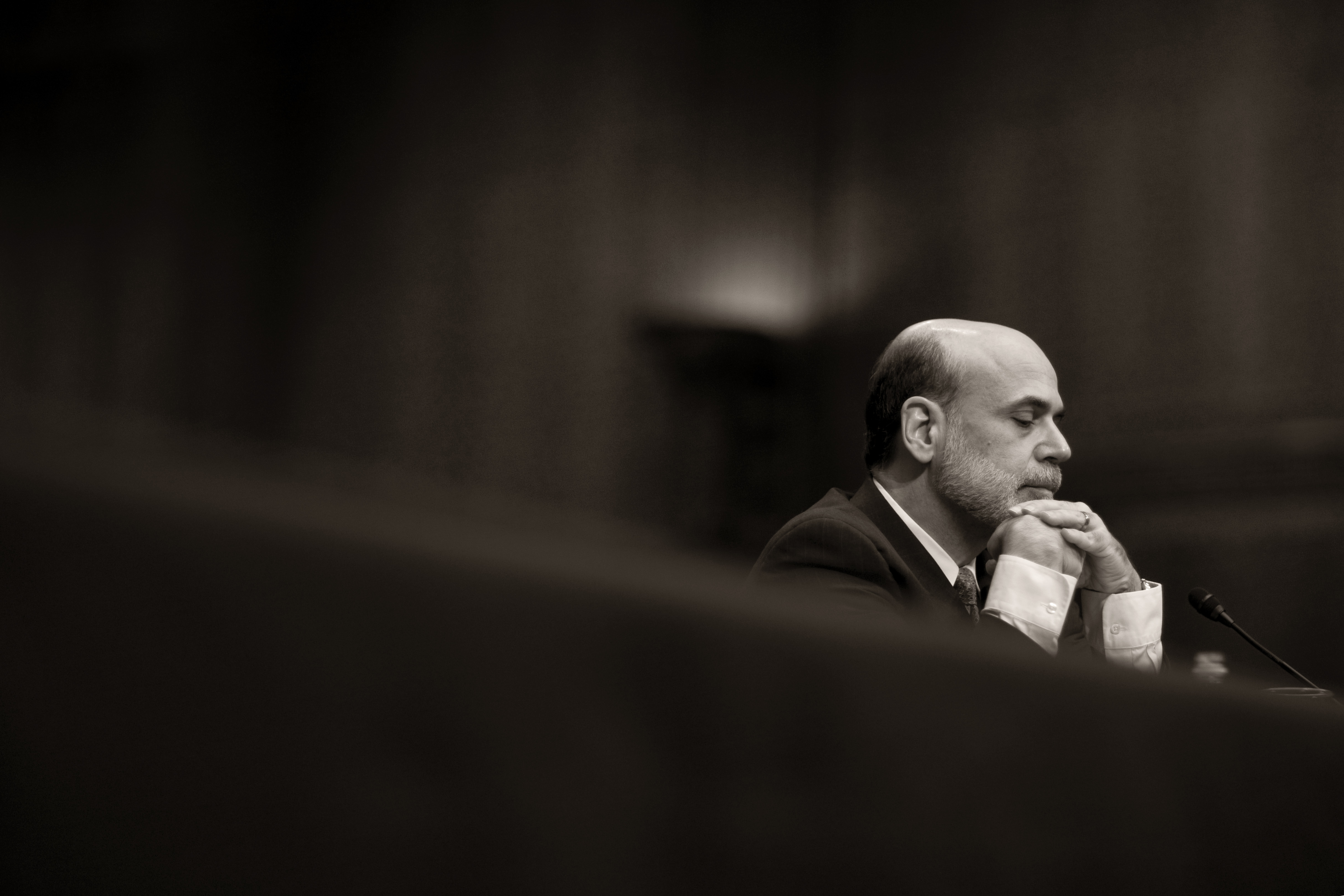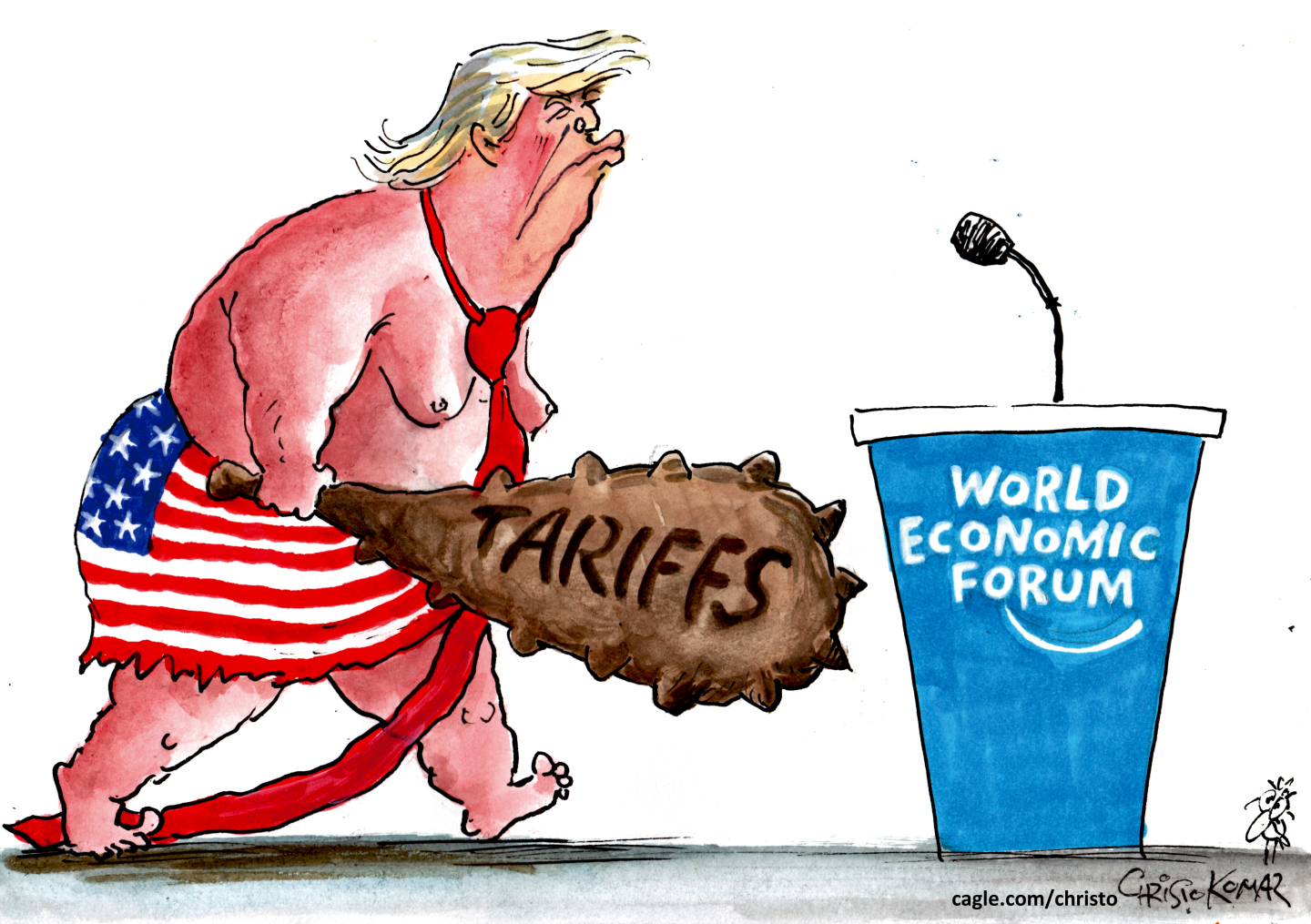What Ben Bernanke could learn from liberal conspiracy theorists
It ain't a conspiracy if it's true


"Never assume maliciousness when simple stupidity is an adequate explanation for someone's behavior."
That's a bit of wisdom my mother once imparted to me. And it appears former Chair of the Federal Reserve Ben Bernanke would agree. Bernanke's new memoir of his time at the Fed — a tenure defined by the central bank's response to the financial crisis and the Great Recession — was released on Monday, and Neil Irwin caught a choice quote from the book's later chapters. It's ostensibly about lefty presidential contender Bernie Sanders, but it actually hides a whole theory about capitalism:
Of course, the Democrats suffered their own delusions, especially on the far left… Sen. Bernie Sanders of Vermont, a self-described socialist who caucused with the Democrats, seemed to see the world as a vast conspiracy of big corporations and the wealthy. (Corporations and the wealthy have lots of power, certainly, but in the real world most bad things happen because of ignorance, incompetence, or bad luck, not as a result of grand conspiracies.) [The Courage To Act]
Now, Sanders clearly sees the rich and big business as the central bad actors in a very unjust economy. Whether it's fair to say Sanders thinks there's an actual "grand conspiracy" afoot is, I guess, a matter of rhetoric.
The Week
Escape your echo chamber. Get the facts behind the news, plus analysis from multiple perspectives.

Sign up for The Week's Free Newsletters
From our morning news briefing to a weekly Good News Newsletter, get the best of The Week delivered directly to your inbox.
From our morning news briefing to a weekly Good News Newsletter, get the best of The Week delivered directly to your inbox.
But what I think's interesting is Bernanke's parenthetical aside. He doesn't really seem to disagree with Sanders' assessment of the justice of the economic order, he just wants to be very clear on why it's unjust. In line with my mom's advice, he attributes it to error and foolishness rather than outright maliciousness.
Far be it for me to quibble with any of my mother's (or Bernanke's) wisdom, but I don't think this quite cuts it.
Let's start with Bernanke's own field of monetary policy, and the Fed's balancing act between promoting employment and fighting inflation. Vox's Matt Yglesias and Tim Lee have both noted the Fed's bizarre fixation on the threat of rising inflation. There's no sign of that threat in the data, and in the past the economy has done fine even when it was well above the Fed's 2 percent inflation target. Meanwhile the U.S. job market has been terrible for decades.
Yglesias and Lee either fail to ask why the Fed is doing this, or attribute it to well-meaning error. But the banking and financial industries have clear profit incentives to keep interest rates high and inflation low, regardless of the overall state of the economy. They're also deeply entangled with the Fed's decision-making apparatus. Rich people and business owners don't have such a direct profit incentive, but they're going to prefer low inflation too. And they'll be the last people to be touched by rising unemployment rates or job insecurity, which is exactly what the Fed risks inflicting on workers if it prioritizes low inflation over all else.
A free daily email with the biggest news stories of the day – and the best features from TheWeek.com
Indeed, a very low unemployment rate is an unpleasant experience for the wealthy and for business owners, because it lowers their real incomes and makes workers and the rest of society more difficult to control.
This same dynamic plays itself out across one policy question after another. Despite reams of countervailing evidence, much of the American elite and the entire Republican Party are convinced that austerity is the way to growth, and that the debt is a serious threat to the economy. Many elites and conservatives also insist, again despite evidence and common sense, that government aid encourages idleness and isolation and dissolves the social fabric. Meanwhile, the savage spending cuts required by all this logic drive down the job supply, stripping workers of bargaining power and lowering their wages. Republicans and their supporters also continue to call for high-end tax cuts on incomes and capital gains, despite zero evidence these spur growth, and plenty of evidence they allow rich shareholders to cannibalize the economy.
Now, it's highly doubtful this is all consciously linked in the minds of the elite. Most people don't like to think of themselves as feudalists waging proactive class war on the less fortunate. But rich people don't like it when the costs of their amenities and services and vacations go up, any more than anyone else does. Corporations like wide profit margins, shareholders like big payouts, and CEOs like running their companies as they see fit, rather than engaging in a democratic give-and-take with their employees.
When you're privileged, it's nice to think you got there because of your disproportionate virtue, and that others lack your good fortune because they lack that virtue. If you're a captain of industry, you're likely to think that unsustainable debt and hyperinflation are just around the corner if society doesn't control the appetites of the masses, precisely because keeping yourself wealthy and powerful does require restraining the interests and wants of those below you.
Finally, for privileged people living in comfort, it also requires direct human encounters or a vivid imagination to put themselves in the shoes of those who sit on the other sides of these trade-offs. But that human contact and imaginative capacity is exactly what living in privilege cuts off.
Ironically, conservatives have long accused liberals of having an unrealistically optimistic view of human moral capacities. They insist human beings are actually sinful and selfish and ambitious, and that's why capitalism works. And yet here's Ben Bernanke, defending the current capitalist order with a remarkably benevolent view of human nature. Which implies that, if you don't think human nature is benevolent, then it follows that unrestrained market capitalism is probably a very bad idea.
Absent lots of pushback from institutions like unions and the welfare state, the profit motive and big class divides are the dominating forces in capitalism. Even if the elite aren't actively seeking class war, those forces can unthinkingly coordinate them into actions and policy preferences that amount to class war anyway. When you introduce competition and status and power into the mix, the line between stupidity and malevolence becomes perilously thin. This doesn't require wealthy elites to be evil; it just requires them to be fallen and human.
So the mistakes keep happening, and keep happening in the same direction, to the benefit (and harm) of the same classes of people. To quote another of my mom's sayings: Once is an accident, twice is a coincidence, and three times is, well, a conspiracy.
Jeff Spross was the economics and business correspondent at TheWeek.com. He was previously a reporter at ThinkProgress.
-
 Ryanair/SpaceX: could Musk really buy the airline?
Ryanair/SpaceX: could Musk really buy the airline?Talking Point Irish budget carrier has become embroiled in unlikely feud with the world’s wealthiest man
-
 Claudette Colvin: teenage activist who paved the way for Rosa Parks
Claudette Colvin: teenage activist who paved the way for Rosa ParksIn The Spotlight Inspired by the example of 19th century abolitionists, 15-year-old Colvin refused to give up her seat on an Alabama bus
-
 5 contentious cartoons about Donald Trump at Davos
5 contentious cartoons about Donald Trump at DavosCartoons Artists take on weaponized tariffs, a cheeky offering, and more
